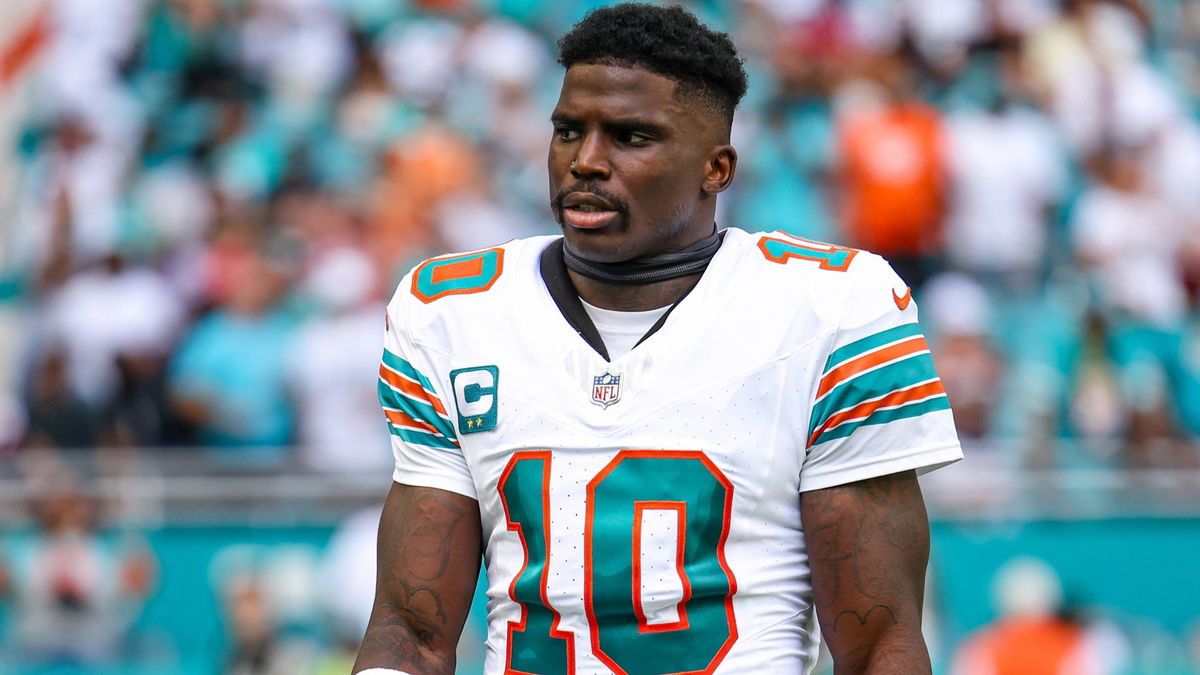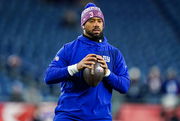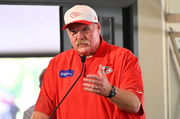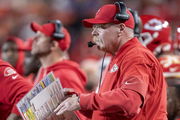

Tyreek Hill’s 80-yard touchdown against the Jaguars wasn’t just another highlight-reel moment. It was a statement, punctuated by Hill’s post-score “handcuffs” celebration, that spoke volumes about a Sunday morning that began with the star receiver face-down on the pavement. “Let’s make a change,” Hill posted on X shortly after body cam footage of his detainment was released.
Watch What’s Trending Now!
His words, though brief, carried the weight of a man who’d just experienced what he described as going “from zero to ten” in seconds. The incident outside Hard Rock Stadium has set the NFL world ablaze, with players and fans alike calling for accountability. Hill’s teammate, Jalen Ramsey, didn’t hold back. “FIRE EM IMMEDIATELY!” he reacted to the body cam footage on social media.
“Mfs like them can’t have no type of power, they gotta go!” Ramsey’s outburst reflects a growing frustration among players who feel the badge sometimes overpowers basic rights. The body cam footage tells a tale that’s hard to watch.
ADVERTISEMENT
Let’s make a change
— Ty Hill (@cheetah) September 10, 2024
Hill, pulled over for an alleged traffic violation, is seen being yanked from his car and handcuffed on the ground. One officer can be heard shouting, “When we tell you to do something, you do it. Do you understand?” It’s a far cry from the treatment you’d expect for someone just trying to get to work – even if that work happens to be catching footballs in front of thousands.
The South Florida Police Benevolent Association tried to spin the narrative, claiming Hill was “not immediately cooperative.” But Hill’s account to NBC Nightly News paints a different picture. “I let back up my window, he said, let it out. I let it down. Yeah, that’s when it went from zero to ten, the other officers came in just pulle-“ His words trail off, but the implication is clear – things escalated quickly and unnecessarily.
ADVERTISEMENT
Hill’s attorney is now “exploring all legal remedies,” signaling this isn’t just a speed bump on the way to the stadium. It’s a collision between an NFL star and a system many feel is long overdue for an overhaul. As Hill put it, “What if I wasn’t Tyreek Hill? Lord knows what those guys would have done.”
ADVERTISEMENT
Calais Campbell’s stand makes him the unsung hero
While Hill’s name dominated headlines, another player’s actions spoke volumes about brotherhood and courage. Calais Campbell, the Dolphins‘ defensive end and former Walter Payton Man of the Year, found himself in handcuffs for simply being a good teammate. Campbell, driving by the scene, recognized Hill and stopped to help. “I was like, ‘What’s going on, did somebody crash?'” he told Emmanuel Acho of Fox Sports.
“I’m like hold up, that’s Tyreek. So I pull over and I was just sitting there observing for a while and I see the officers using, like, unnecessary force.” Instead of driving away, Campbell stepped up. He approached with hands raised, identifying Hill as his teammate. For his trouble, Campbell got a set of bracelets that weren’t part of his gameday attire.
Top Stories
Caleb Williams Puts Locker Room on Notice After Rams Publicly Announce Bears QB’s Weakness

Russell Wilson Announces New Citizenship Plans Away From America as Giants QB Makes Career Decision

Andy Reid Gets Unfortunate Update on Chiefs’ Veteran Coach’s Retirement After Announcing Double Firing

Eagles Issue Statement on Lane Johnson’s Retirement Decision After Announcing Update on $96M Star’s Future

Andy Reid Announces Double Firing Decision as Patrick Mahomes Outlines Ideal Chiefs OC

“He put me under arrest,” Campbell recounted. “I wasn’t cited. He put me in handcuffs — in handcuffs for like five minutes.” Campbell’s intervention wasn’t just about backing up a star player. It was about standing up for what’s right, even when it’s inconvenient. His actions that morning were as impactful as any sack or tackle he’s ever made on the field. As Campbell put it, “It was a crazy situation. It was not necessary.”
ADVERTISEMENT

ADVERTISEMENT
This incident has sparked a conversation that goes beyond football. It’s about power, respect, and the expectation of fair treatment, regardless of who you are or what uniform you wear. As Dolphins head coach Mike McDaniel emotionally stated to reporters, “The thing that f***s me up, honestly, to be quite frank, is knowing that I don’t know exactly — I don’t what that feels like.”
As the NFL and its players continue to grapple with these issues, one thing is clear: The game has changed, and it’s no longer just about what happens between the whistles. Hill’s promise to “explore all legal remedies” suggests this story is far from over. The question now is, will it lead to real change?
ADVERTISEMENT
ADVERTISEMENT
ADVERTISEMENT

